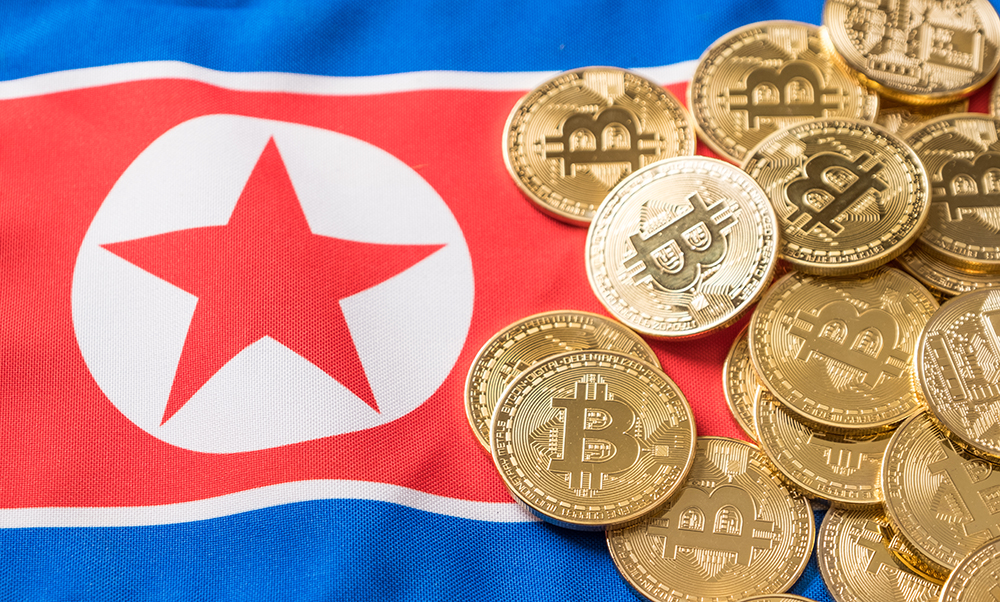North Korea stole over $ 1.7 billion in cryptocurrencies by hacking exchanges around the world.
South Korean media reports that North Korea hacked 2 trillion won ($ 1.7 billion) worth of cryptocurrencies from exchanges. Surprisingly, North Korea did not sell all of the proceeds from the hacks, but instead keeps them in many cases.
For North Korea, the financial and economic sanctions imposed on the country by the West are the main motivation for carrying out these attacks. This is reported by Koh Myung-Hyun, Senior Research Fellow of the Asian Institute for Policy Studies.
“Considering that the price of Bitcoin (BTC) has increased more than 60 times since 2017 when North Korean hackers started hacking cryptocurrency exchanges, North Korea is using the stolen cryptocurrency from a long-term investment perspective. For North Korea, cryptocurrency has become the only financial asset that can be acquired while under severe economic sanctions and [recognizes its value] for sanction evasion purposes. "
Allegations that North Korea used hackers to steal money from exchanges have long been around. The U.S. Attorney's Office in Washington, DC recently announced that North Korea has been responsible for hacking virtual asset exchanges for the past several years. In the October 13 indictment, the U.S. Attorney's Office said:
"In this seizure suit, the US government found that North Korean hackers conspired with other money laundering criminals to steal virtual assets from three virtual asset exchanges and launder the proceeds."
North Korean hackers employ several strategies, including the use of malicious blockchain platforms and applications, as well as phishing and other hacking methods. The programmers are part of the North Korean military intelligence service.
One group that is held responsible for the hacking incidents is called Lazarus. Some of these funds are reportedly used to buy weapons, including expanding the country's nuclear and missile capabilities, and importing goods and services to help finance the economy.
An entire state perpetrating cryptocurrency theft is worrying, but perhaps even more worrying is that thefts and hacks are a fairly common phenomenon in the crypto market. With more and more capital flowing into the market, it's not surprising that hackers target it.
According to the latest findings from the Atlas VPN team, DeFi-related hacks account for 76% of all major hacks in 2021. In addition, many scammers have launched fake DeFi projects to capitalize on the hype in the crypto industry. The data is based on the Cryptocurrency Crime and Anti-Money Laundering Report published by CipherTrace in August 2021 .
DeFi logs can be hacked for a number of reasons. Many DeFi projects are hacked due to the incompetence of the developers, which leads to coding errors that hackers can exploit. Other cyber criminals can take out a lightning loan and manipulate the token price to hack the DeFi protocol.
The Yearn Finance Flash-Loan attack was one of the biggest DeFi hacks in 2021. The attack on the platform took place in February of this year. The hackers looted $ 11 million and got away with $ 2.7 million in profit. They used $ 8.5 million in fees. The hackers used flash loans to take out a secured loan. The hacker then deposited into Yearn's pool, which inflated the DAI.
My Top PicksHoneygain - Passive earner that pays in BTC or PayPalMandalaExchange -The Best no KYC crypto Exchange!
BetFury - Play And Earn BFG for daily Bitcoin and ETH dividends!
Pipeflare - Faucet that pays in ZCash and Matic, Games pay in DAIWomplay - Mobile dApp gaming platform that rewards in EOS and BitcoinCointiply - The #1 Crypto Earning SiteLiteCoinPay -The #1 FaucetPay earner for LitecoinUpland - Collect Digital Properties & Test Your SkillsLBRY/Odysee - YouTube Alternative that lets you earn Money by viewing videos!FaucetPay - The #1 Microwallet PlatformFREEBTC - The #1 FaucetPay earner for Satoshi'sFaucetCrypto - An earning/faucet site that pays out instantlyFireFaucet - An earning site that pays better for some than Cointiply
DogeFaucet - Dogecoin Faucet
xFaucet - BTC, ETH, LTC, Doge, Dash, Tron, DGB, BCH, BNB, ZEC, FEY - Claim every 5 minutes
Konstantinova - BTC, ETH, LTC, Doge, Dash, Tron, DGB, BCH, BNB, ZEC, USDT, FEY, 25 Claims Daily


Comments
Post a Comment